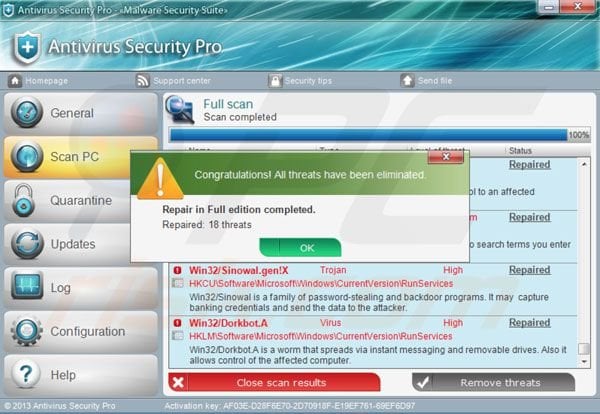

What assurances do these services make that they won't sell, share or store the information you must give them in order to erase yourself elsewhere? DeleteMe's privacy policy claims it will “never sell your data” or “profit off their users by selling their info.” He acknowledges users "have to trust us with it.” Rich Matta, CEO of ReputationDefender, agreed, adding, “We can’t get everything, but we can get enough to make you a much harder mark.” And if I’m a harder mark than you are, I may not be the next victim. But, he said, “by removing our profiles from data brokers we make it significantly harder for others to find public records.” This is why you need an ongoing subscription or must stay vigilant yourself.ĭeleteMe's co-founder and CEO Rob Shavell says no online reputation service can remove all your data or keep it off permanently. Unfortunately, this is not a one-time scrub and done scraping is ongoing and forever.

#SEARCH PRIVACY PRO REMOVE FREE#
DeleteMe, which starts at $129 for a year’s subscription, and its competitor Reputation Defender, also provide consumers free tools to do the erasing themselves. DeleteMe informed me others could take up to six weeks because they require either a fax or snail mail request. From some services I was erased within 24 hours. Over the next several weeks I watched in relief as my data disappeared. Data brokers are companies that collect personal information about consumers to sell to businesses, government entities and political campaigns, according to the Privacy Rights Clearinghouse.)Īwakened to the dangers, I started the process of erasing my Internet self.ĭeleteMe, one of the online reputation services, provided me with a comp account and promised to remove me from the top people-finder databases - in my case, 23 of them. (People finder sites generally provide data to individuals. With a book list here and an online quiz there, we reveal little bits of ourselves, allowing people finder sites and data brokers to come along and pull the pieces together. Where does this information come from? Too often, it comes from us. I’m six years younger on Spokeo than in real life, which tells me all data must be verified. Of course, what you see isn’t always correct. Watch Video: 4 ways to get advertisers to stop tracking you I was surprised to find that just one week after my divorce was finalized my marital status had been updated to “single.” The names and addresses of my close relatives were listed, as were my phone numbers going back more than 20 years. I think you will be very uncomfortable with what you find. People-search sites also aggregate information not normally considered public: Our cellphone and Social Security numbers, our kids’ names, where we work, what movies we’ve seen, even our Amazon wish lists.Ĭheck yourself out. “If it’s publicly viewable information about you on the Internet, it’s probably being ‘scraped.’ ” “People-search sites have some of the most sensitive and revealing information,” said Gennie Gebhart, a consumer privacy, surveillance, and security issues expert with the Electronic Frontier Foundation. So, too, do stalkers, ex-spouses and others seeking to invade your privacy. To access the database you’ll generally pay a fee that varies by how much information you want. Law enforcement, private investigators and journalists regularly utilize these services. People-finder companies such as Spokeo, White Pages and BeenVerified offer detailed background reports on individuals that can include contact information, addresses, properties owned or leased, court and criminal records, liens, judgments and more. I did this, and for the most part it has been successful. But buyer beware: It can be costly. If you're uncomfortable with the information that’s publicly available about you, you can try to delete yourself by using one of the online reputation services, such as DeleteMe. Or maybe - as I discovered - a near stranger found out a lot about me by paying a small fee. You may have run across various people-finder websites when trying to find forgotten friends' phone numbers or addresses. Watch Video: Why your privacy is at risk despite not being a Facebook user


 0 kommentar(er)
0 kommentar(er)
